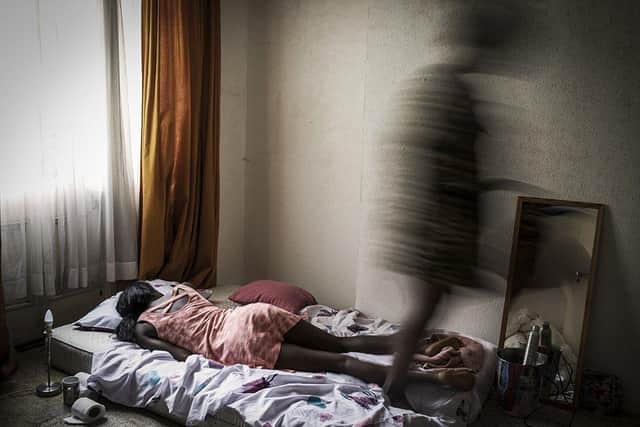Sussex Police call upon public to help them spot signs of modern slavery
and live on Freeview channel 276
It comes after the force supported a national campaign to focus on vulnerability, exploitation and human trafficking, and to raise awareness of these hidden crimes.
Officers visited a number of care homes across the county where concerns were raised as part of Operation Aidant, led by the National Crime Agency, which ran from Monday, March 28 to Friday, April 1.
Advertisement
Hide AdAdvertisement
Hide AdDetective Chief Inspector Colin Garman, Force Tactical Lead for Modern Slavery and Human Trafficking, said: “Our campaign was mostly about education and engagement; preventing these horrific offences from happening in the first place. But in order to achieve this, we need the public to be vigilant and support any suspicious activity to us.


“Next time you visit your loved one at a care home, take a moment to observe the behaviour of the employees. Do they appear withdrawn, scared or controlled by others? Are they unkempt in their appearance or do they have unexplained injuries? These are all signs that they could be being exploited.
“What’s so distressing about this is that these people are employed to look after vulnerable people; yet they could be vulnerable themselves.”
Police and partners visited one care home in the Crawley area and a further three in the Hastings area, where former employees had reported concerns.
Advertisement
Hide AdAdvertisement
Hide AdNo arrests were made and no workers were identified as needing to be safeguarded, however an investigation is ongoing into one of the premises in Hastings to determine whether any criminal offences have been committed.
Tim added: “While it’s great that we’ve received so few reports, it’s possible that this is an under-reported issue. Sussex is a large county with a large number of care homes, and we need to ensure we have a realistic picture of what is going on.
“The workers we spoke to were male and female aged between 17 and 53, who have all come from overseas in search of a better life. They have paid a significant amount of money to obtain a working visa, and it was vital that we were able to offer them information and advice, and signpost them to support services if needed.
“Modern slavery could be happening in your community, so it’s important you know the signs that could indicate someone is a victim of this crime and help us to investigate by reporting any concerns.”
Advertisement
Hide AdAdvertisement
Hide AdThe signs aren’t always obvious but these are some that you may notice:
- Being scared and withdrawn
- Lacking in confidence
- Unexplained injuries
- No access to passport or documents
- Limited contact with family, or outside world
- Doesn’t know home or work address
- Distrustful of the authorities
- Poor hygiene and unkempt appearance
- Signs their movements are being controlled
- Allows others to speak for them when addressed directly
Anyone with concerns about individuals who may be involved are urged to call us on 101 (999 in an emergency) or report it online.
Alternatively, suspicions can be raised anonymously through independent charity Crimestoppers on 0800 555 111.
If you think you are a victim of modern slavery, please seek help. The Modern Slavery Helpline can assist you to understand what help is available including information, advice and ways to access support. The helpline is confidential and you don't have to give your name if you don’t want to.
For more information, visit Modern Slavery Helpline or call 08000 121 700.